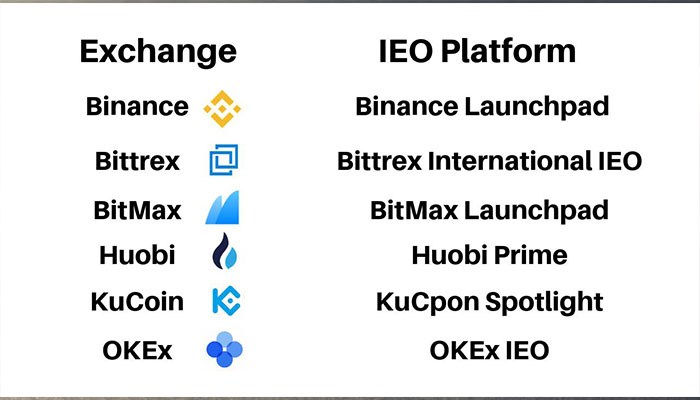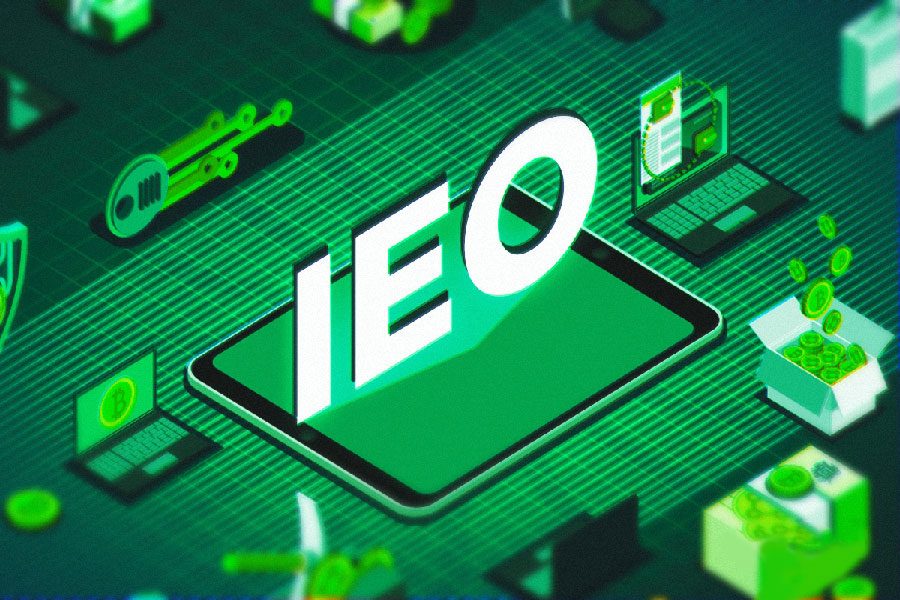What is an Exchange Offer (IEO)?
These days, we see tokens being pre-sold by big exchanges like Binance. Holding IEO and token pre-sales on large exchanges has many advantages for investors, and of course, its disadvantages can not be ignored. In this article, we will examine this concept.
Initial supply of exchange
Initial Exchange Offering, as its name indicates, means the initial offering of tokens based on digital currency exchange. Unlike an initial coin offering (ICO), which is held directly by a project team. An exchange offer is managed by an exchange on behalf of a startup to raise capital for the sale of tokens.
Because the operation of selling tokens takes place on an exchange platform, token issuers must pay a listing fee, plus a percentage of their token sales to that exchange. Rather, the tokens sold are listed in the exchange immediately after the end of the IEO. Since a percentage of the sales of these tokens go to the exchange. They will have enough encouragement to collaborate in marketing and advertising activities. People who participate in the initial public offering of the exchange do not send their funds directly to the startup address. But instead, open an account in the organizing exchange and buy tokens through the currencies in their exchange wallet.
The initial public offering of the exchange greatly alleviates concerns that projects are dishonest.
Exchanges that have an IEO platform
Many digital currency exchanges have started accepting CEOs led by Binance Exchange. Binance Exchange has launched the initial public offering platform of a dedicated exchange called Binance Launchpad.
In January 2019, the project BitTorrent acquired by Theron acquired $ 7.2 million in less than 15 minutes by selling its tokens in the Binary Lancade, reaching its hard cap (maximum capital). Selling tokens in less than 15 minutes for a startup is like a dream. The second IEO to be held on the platform was a project called Fetch, which was able to reach its $ 6 million hard caps in 22 seconds.
Following the rise of Binance Launcher, other large exchanges also developed their platforms. For example, it has developed the Bitmax exchange, the Bitmax launch platform, the OK exchange, the OKEx platform, the KuCoin exchange, the KuCoin Spotlight platform. And the hobby exchange, the Huobi Prime platform. The image below shows some of the IEO platforms.

Differences between IEO and ICO
Exchange initialization and initial coin interface, smart contract management, customer identification requirements offering differ in terms of crowdfunding platform, crowdfunding (KYC) and anti-money laundering (AML), marketing requirements, startup qualification. And listing time at the exchange Which we will examine in the following.
• Collective platform
• Execution of crowdfunding processes and smart contract management
In the initial public offering of coins, the originators of the project are responsible for this. But in the initial public offering of the exchange, these commissions are the responsibility of the exchange. Because the exchange is responsible for paying tokens to its customers.
• Customer identification and anti-money laundering policies
The need for customer identification and anti-money laundering policies in the initial coin offering varies greatly depending on the type of project. In other words, in some projects, participants may need to supply identification and records to partake in the ICO. And in other projects, such documents may not be required, but in the initial public offering of exchange. Since exchanges adopt such policies to open their accounts. Participation in the project required the proposal of documents.
• Marketing budget
The cost of commerce and advertising in the initial public offering of coins is entirely the responsibility of the development team. And they are required to pay high costs to succeed, but in the initial public offering of tokens. The marketing of tokens is the responsibility of the exchange itself.
• Startup Qualification (Scam Reduction Risk)
There are no limitations on the initial public offering of a coin, and anyone can hold ICO, but in IEO. The exchange office first reviews the project and, after permitting, issues a crowdfunding license on its platform.
• Listing in an exchange
In the initial public offering of a coin, the listing of tokens does not occur after the end of the public offering. But in the initial public offering of the exchange, the token allocated in the exchange office is listed after the end of the public offering.
Advantages and disadvantages of IEO
Benefits of initial exchange supply

• Trust and reduce fraud risk
One of the benefits of IEO is trust. Since fundraising is done on the platform of digital currency exchange. And this exchange carefully examines any project that intends to raise capital through its platform, not every project can attract capital. In this way and several quality indicators must be met. Have. Exchanges scrutinize everything to maintain their credibility and name. This puts investors who want to participate in crowdfunding several steps differently and gives them more conviction. The initial public offering of the exchange can eradicate scams and suspicious projects.
Consider, for example, the initial public offering of the Raid project. Just hours before the initial sale, Bittrex announced that it would not collaborate with the project and canceled the IEO. The reason for this was the cessation of collaboration. Between the Raid project and the online game data analysis company OP.GG. According to Bittrex, this cooperation played a vital role in the success of the project, and when the exchange office became aware of this issue. It decided to cancel the sale of tokens because it believed that the exchange users would be disappointed with this news.
• Security
The issue of security in the process of selling tokens is very important and it has happened many times that due to the hacking of the sales website. And manipulation of the address related to the project wallet or any other reason. The money was erroneously sent to another address and participants did not receive any tokens. There was no need to worry about security in the initial public offering of the exchange, as the exchange itself manages a smart contract for the sale of tokens. In addition, Customer Identification (KYC) and Anti-Money Laundering (AML) processes are performed by exchanges. Most digital currency service providers have such policies for creating accounts on their platforms.
• Ease
Startups that plan to allocate tokens to raise capital will benefit from such a flawless and secure IEO start-up process over ICOs. Although they have to pay a ratio of their token sales with some commission fee to hold an IEO, they are instead given the expensive and complicated ICO marketing process. Therefore, the budget required for the initial public offering of the exchange is much less than for the ICO. In complement to these projects. They can use the common customer base of exchange offices to attract investors’ attention to themselves.
• Token listing
Since listing on an exchange is one of the first transactions in exchange, after start-up, startup tokens are usually listed on the exchange.











